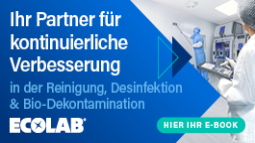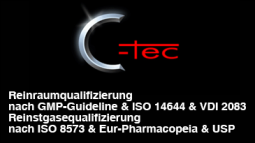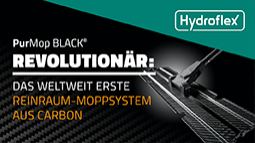Mansur Gharabaghi
DSM Sinochem Pharmaceuticals supports fight against superbugs and welcomes the clear recommendations of the AMR Review
DSM Sinochem Pharmaceuticals (DSP) welcomes the final report of Lord O’Neill’s global AMR Review, which lists concrete interventions to fight antimicrobial resistance (AMR) and the drug resistant superbugs it creates. DSP fully supports these measures. Guided by its brand promise “Quality. Reliability. Sustainability.”, DSP has been advocating for more transparency in the value chain and to stop irresponsible production of antibiotics. In line with the AMR Review recommendations, DSP is promoting the use of the best and cleanest available technology, dedicated waste water treatment plants and antimicrobial activity testing, to ensure clean and high quality production.
Lord Jim O’Neill’s global Review on AMR sets out its final recommendations, providing a comprehensive action plan for the world to prevent drug-resistant infections and defeat the rising threat of superbugs – something that could cost 10 million lives a year by 2050, the equivalent of 1 person every 3 seconds, and more than cancer kills today.
DSP is glad to see that the AMR Review addresses the role of irresponsible antibiotics production and unnecessary pollution; something that has long been missing in the public debate. The irresponsible manufacturing of antibiotics forms a particular risk for the acceleration of antimicrobial resistance (AMR) via the uncontrolled release of antibiotics into the environment. Quantities of concentrated active compounds disposed via this route, particularly water courses downstream of production facilities, can show marked concentrations of antimicrobial activity and risk becoming breeding grounds for resistance.
DSP cannot accept that a life-saving drug may become less effective. It therefore demands that the industry to stop buying, making and selling irresponsibly made antibiotics. DSP very much welcomes the recommendation of the AMR Review that stipulate using the best available technology, dedicated waste water treatment plants and the execution of antimicrobial activity tests to ensure returned water is truly clean and safe. Measures that some responsible antibiotics producers, including DSP, have already implemented at their sites.
DSP also stipulates that in the short run, an industry label for responsible use and manufacturing of antibiotics can help to take quick and effective action, much like we have seen in other industries. Ultimately, such measures should become part of existing frameworks such as Good Manufacturing Practices (GMP).
Karl Rotthier, CEO of DSM Sinochem Pharmaceuticals said: “In 2013, we were the only company raising the issue of pollution from antibiotics production. I am glad to see that today this topic has become part of the global debate! DSP is committed to following the recommendations of Lord O’Neill’s Global Review on AMR and will continue to advocate for responsible and clean production. We all owe it to the world to produce these essential life-saving medicines in the most responsible and sustainable way possible.”
Lucas Wiarda, Global Marketing Director and Head of the Sustainable Antibiotics Program of DSM Sinochem Pharmaceuticals said: “I am very happy to see pharma pollution getting the attention it needs. This is the area where we as the industry must take urgent action and can make a difference in short time. At the same time it is imperative that we continue to address the global issue of AMR in line with the ‘one-health‘ approach, addressing human and veterinary use but also pollution from production. The AMR Review, led by Lord Jim O’Neill, quickly became a unique internationally respected institute. Their reports have helped to raise awareness for AMR in the public, while their proposed interventions from an opportunity for the entire industry to take responsibility, define solutions and ensure a positive contribution to society. I am hopeful that their recommendations will be quickly adapted by politics, the public at large and the industry.”
DSP has long been vocal about the role of the industry in antibiotic resistance and the need to use the cleanest production technology and dedicated waste water treatment plants in combination with antibiotic water testing. These basic requirements for clean and sustainable antibiotics production are implemented at all DSP sites.
These efforts are shared in more detail in the annual Sustainability Report of DSP, available from the company website www.dsm-sinochem.com.
AMR: a global health threat
Antimicrobial Resistance (AMR) is one of the biggest health threats facing mankind, and the imperative for action is growing at both an individual and a global political level. Progress on both of these fronts is needed in order to tackle this threat, and this cannot be limited to action on human and agricultural use. It must also include action to ensure that manufacturing practices are improved and the quantities of APIs reaching the environment through waste are reduced. The human and economic cost of inaction could mean up to 10 mio. deaths per year from AMR alone and a cumulative hit to the world economy of 100 trillion USD, if we do not curb resistance and find long-term solutions to producing, using and disposing of antibiotics responsibly.
DSM Sinochem Pharmaceuticals is the global leader in Sustainable Antibiotics and next generation statins. Our employees worldwide work together to deliver cutting edge generics solutions that help to keep customers ahead of the competition.
Headquartered in Singapore, the group has operations in China, India, Egypt, the Netherlands, Spain, the US and Mexico.
DSM Sinochem Pharmaceuticals Netherlands B.V.
2613 AX Delft
Netherlands








